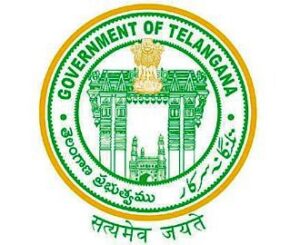HOW MUNICIPALITIES FUNCTION AND ELECT MEMBERS
‘Municipalities’ means institutions of self-governance, ‘Municipality’ shall be construed as Municipal Council and Municipal Corporation wherever the context so requires and unless provided otherwise under this Act. Municipalities and Municipal Corporations are constituted on the basis of ‘smaller urban areas’ and ‘larger urban areas and these terms are also defined in the Act.
Another important position is ‘Chairperson’ and ‘Vice-Chairperson’. These words mean (i) in relation to a Municipal Council, the Chairperson and Vice-Chairperson respectively; and (ii) in relation to a Municipal Corporation, the Mayor, and the Deputy Mayor respectively.
The State Legislature is empowered by way of amendment to this Act to modify or add or alter schedule I or II of this Act. The legislature is also authorized to constitute any local area as the municipality, include or exclude any area in or from a municipality, or abolish a municipality.
The composition of municipalities is covered in section 5.
In each municipality, there is a Municipal Council or a Municipal Corporation having authority over the municipality. The Council of the Corporation consists of (i) elected members, (ii) Ex-Officio members, and (iii) co-opted members.
(i) Elected members
The municipality is divided into wards and voters in each ward elect a member who is called ward member. The number of wards is specified in Schedule I (councils) and II (corporations) of the Act.
(ii) Ex-officio members
Member of the Legislative Assembly (MLA), representing the constituency ofØwhich a municipality or a portion thereof forms part. Member of the House of People (MP – Lok Sabha), representing the constituency of which a municipality or a portion thereof forms part.
If the constituency of MLA and MP consists of more than one municipality, he may choose one municipality within 30 days of his election, where he is an ex-officio member, else the District Election Authority will decide the municipality. MLA and MP have voting right in which he is an ex-officio member and in other municipalities, he may take part in the proceedings but do not have voting right.
Member of the Legislative Council (MLC): The MLCs are elected throughØ (i) electorate of local authorities, (ii) electorate consisting of graduates, (iii) electorate consisting of teachers and (iv) members of the Legislative Assembly; and, through (v) nomination by Governor.
The MLC elected through any of the four channels may choose within 30 days any one of the municipalities in his jurisdiction to be an ex-officio member, else the District Election Authority will decide the municipality. Also, the nominated (by the Governor) member may choose to be an ex-officio member of any one of the municipalities in the State, else the district election Authority will decide the municipality. The MLC has the voting right in which he is ex-officio
Member of the Council of States (MP -Rajya Sabha).Ø
The MP (Rajya Sabha) may choose within 30 days to be an ex-officio member of any one of the municipalities in the State, else the District Election Authority shall decide the municipality. He has the voting right in which he is an ex-officio member and in other municipalities, he may take part in the proceedings but do not have voting right. member and in other municipalities, he may take part in the proceedings but do not have voting right.
Co-opted membersØ
The municipality co-opts
(a) two persons in the case of Councils and three persons in the case of Corporations having special knowledge or experience in municipal administration; and (b) two persons belonging to a minority community.
(b) The co-opted members can participate in the meetings of the municipality, but do not have voting right.


